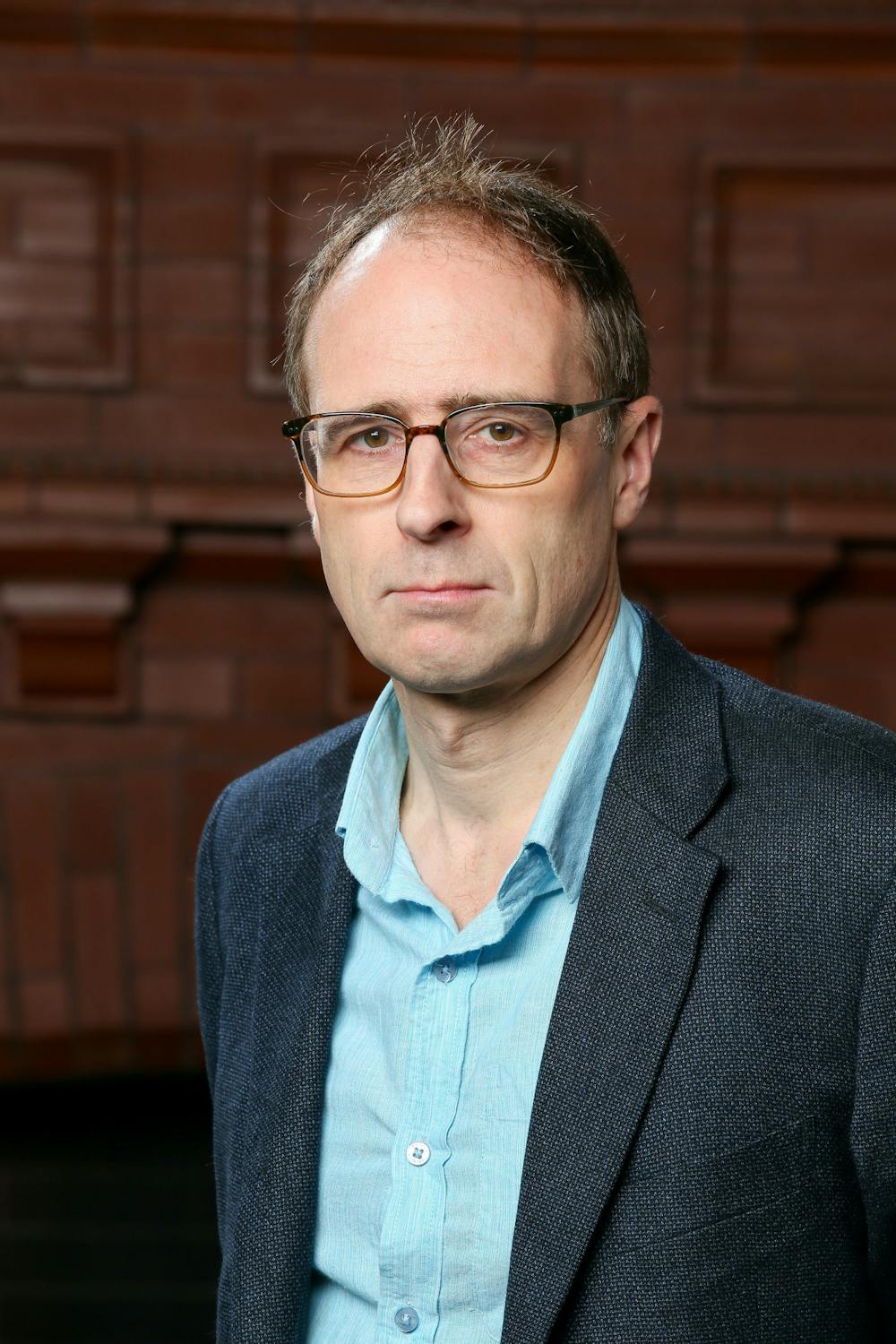Timothy Bewes, professor of English and interim chair of the Department of English, was selected for the National Book Critics Circle Award in literary criticism for his book “Free Indirect: The Novel in a Postfictional Age” last month.
In his book, Bewes explores the evolving genre of literary fiction as undermining traditional conceptions of subjectivity and consciousness, and how this changing genre is complicating the academic study of the novel.
The NBCC website summarizes Bewes’ book in a series of questions: “How does the novel think? … What does it mean to attribute a process of thought to the novel itself, as distinct from its narrator, characters, author or readers?”
According to a University press release, Bewes said that a new generation of novelists “is refusing to present their stories in the context of a prevailing ideology,” making it impossible for readers to discern what exactly their novels “mean.” But according to Bewes, a novel does not have to “mean” anything to be legitimate — in fact, ideological ambiguity is actually what makes a book “novelistic.”
When the award was announced, “I turned to my editor, who was sitting beside me with a huge smile on his face, and expressed my surprise with a mild profanity,” Bewes wrote in an email to The Herald. He had previously been shortlisted for the award in January, which secured him an invitation to the awards ceremony in New York.
“I was thrilled to be shortlisted and astonished to win,” Bewes said, adding that academic books do not often win awards. Bewes dedicated his success to “the nationwide community of academic literary critics, of whom I am proud to be a member.”
While accepting his award, Bewes said he attempted to have his speech reflect the themes of his book: "To write an acceptance speech like this — in advance of the award … is to enter into a region that, my book argues, we dwell in all the time, one that is inherent to all mental and discursive life: fictionality. I become a novelist.”
NBCC award recipients are decided by multiple rounds of voting by committees composed of the NBCC board of directors, “which consists of critics and editors from some of the country’s leading print and online publications,” according to the NBCC website.
Throughout his book, Bewes argues that novels “think” — but the thoughts they possess are not derived from the “representation of thoughts by characters, narrators or authors.” Instead, novels are able to produce new ideas due to the ability of literature to “think new worlds into being.”
The belief that “all thoughts are inherently representable” is “powerful and insidious,” Bewes wrote. The revolutionizing of “noninstantiated” thought “is the reason novelistic thinking is so necessary in our time.”
Bewes wrote in an email to The Herald that the novel has evolved significantly since the 19th-century, noting that today, “we are living through an era dominated by first-person narration.”
Modern-day novels also operate within a world of “moral and political complexity,” which is “ungraspable by the kinds of individual consciousnesses, or decipherable plots, that novels have traditionally been organized around,” wrote Bewes.
“The genius of ‘Free Indirect’ inheres in the fact that, even while Bewes illustrates the limitations of traditional approaches to the study of the novel, he somehow finds a way to transcend them,” wrote critic Jennie Hann on the NBCC website, adding that the book posits an “intervention in critical theory that will forever change the way we read fiction.”
Jacques Khalip, associate professor of English, told The Herald that Bewes’ book “promises to have a large effect on wider theoretical debates regarding the contemporary novel.”
“The award is remarkably well-deserved for someone like Professor Bewes, who embodies humility and everyday collegiality in English,” he wrote. “I have known him for 16 years, and the pleasure here lies in seeing a friend receive this award, someone who is a generous thinker and interlocutor.”
Stuart Burrows, associate professor of English and director of undergraduate study in the Department of English, wrote in a message to The Herald that he has known Bewes for 20 years and regards him as “a terrific colleague (and) friend.”
“Tim reads everything … and is a great teacher and advisor,” Burrows wrote. “He richly deserves this award — the book is a brilliant analysis of contemporary fiction, and displays his great strengths as a reader of philosophy and literary theory.”

Ryan Doherty was the managing editor of digital content and vice president of The Herald's 135th editorial board. He is a junior from Carmel, NY who is concentrating in chemistry and economics. He previously served as a university news and science & research editor, covering faculty and higher education.

Sofia Barnett is a University News editor overseeing the faculty and higher education beat. She is a junior from Texas studying history and English nonfiction and enjoys freelancing in her free time.





